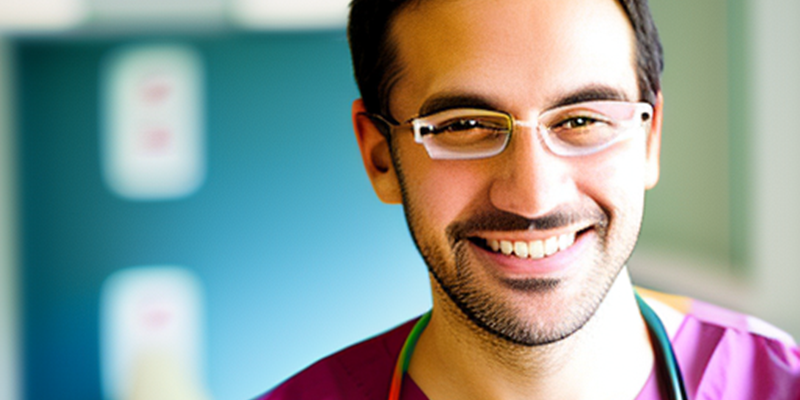Weight Loss Surgery Diet
Weight loss surgery diet requires a dieting process. Your dietitian will prepare a suitable diet list for you together with your doctor. Obesity, defined as the accumulation of excess fat tissue in the body, is one of the most serious diseases of our time. Obesity is a major public health issue that causes chronic diseases as well as a loss of quality of life. And, obesity surgery is a viable option for people who have exhausted all other weight loss options. Obesity surgery is currently the most effective method of treating obesity, and the long term outcomes are very promising.
Dietary Specifics
Diet recommendations following weight loss surgery vary depending on your personal circumstances. A weight loss surgery diet usually takes a staged approach to help you gradually return to eating solid foods. How quickly you progress from one step to the next is determined by how quickly your body heals and adjusts to the change in eating habits. About three months after surgery, you should be able to resume eating normal foods. You must be careful at each stage of the weight loss surgery diet to:
- To avoid dehydration, drink 64 ounces of fluid per day.
- Drink liquids between meals rather than with them.
- Avoid drinking 30 minutes before or after a meal to avoid disposal symptoms, where it happens even before fruits and vegetables and liquids open up your intestinal tract easily and in larger abundance than standard, actually results in discomfort, retching, fainting, perspiration, and diarrhoea.
- Consume lean, protein rich foods on a daily basis.
- Choose low fat and low sugar foods and beverages.
- Stay away from alcohol.
- Caffeine, which can dehydrate you, should be avoided.
- Take vitamin and mineral supplements on a daily basis, as directed by your doctor.
- Once you’ve progressed beyond liquids only, chew foods thoroughly to a pureed consistency before swallowing.
Liquids
You will only be able to drink clear liquids for the first day or so after surgery. Once you’ve mastered clear liquids, you can experiment with other liquids, such as during stage 1, you may consume the following liquids:
- Broth
- Juice without added sugar
- Tea or coffee that is decaffeinated
- Dairy (skim or 1 percent)
- Popsicles or sugar free gelatin
- Foods pureed
You can start eating strained and pureed (mashed up) foods after about a week of tolerating liquids. The foods should be the consistency of a smooth paste or a thick liquid, with no solid food pieces in the mixture. You can consume three to six small meals per day. 4 to 6 tablespoons of food should be consumed at each meal. Eat slowly each meal should last about 30 minutes.
Choose puree friendly foods, such as:
- Ground meat, poultry, or fish that is lean
- Cheddar cheese
- Scrambled eggs, soft
- Cereal that’s been cooked
- Cooked vegetables and soft fruits
- Soups with strained cream
Combine solid foods and liquids, such as:
- Water
- Lactose free milk
- Juice with no added sugar
- Broth
- Foods that are soft
You can add soft foods to your diet after a few weeks of pureed foods and with your doctor’s approval. They should be small, tender, and easily chewed food pieces. You should consume three to five small meals per day. Half a cup of food should be consumed at each meal. Before swallowing, chew each bite until the food is pureed.
Soft foods include the following:
- Lean ground meat or poultry
- Flakes of fish
- Eggs
- Cheddar cheese
- Cereal, either cooked or dried
- Rice
- Fruit that has been canned or is soft and fresh, with no seeds or skin
- Vegetables that have been cooked but have not been peeled
Foods That are Solid
You can gradually resume eating firmer foods after about eight weeks on the gastric bypass diet. Begin by eating three meals per day, with each meal containing 1 to 1-1/2 cups of food. It’s critical to stop eating before you’re completely satisfied.
Depending on how well you withstand real food, you may be able to tweak the amount of food or the volume of nutrients at each meal. Consult your dietitian to determine what is best for you. One at a time, try new foods. Following weight loss surgery, certain foods may cause pain, nausea, or vomiting.
Foods that can cause issues at this point include:
- Breads
- Carbonated beverages
- Vegetables, raw
- Fibrous vegetables that have been cooked, such as celery, broccoli, corn, or cabbage
- Tough meats or meats containing gristle
- Meat that is red
- Foods that are fried
- Foods with a lot of seasoning or that are spicy
- Seeds and nuts
- Popcorn
With your doctor’s approval, you may be able to try some of these foods again in the future.
Results
The weight loss surgery diet can assist you in recovering from surgery and transitioning to a healthy diet that supports your weight loss goals. Remember that if you return to unhealthy eating habits after weight loss surgery, you may not be able to lose or regain all of your excess weight. It is therefore very important that you adhere to this chart. At the slightest disruption, you can start to gain weight again. All your hard work and money will go to waste. You will only suffer.
Risks
The most serious risks of the gastric bypass diet stem from poor adherence to the diet. Complications may arise if you overeat or consume foods that you should not. These are some examples:
You are more likely to experience nausea, vomiting, dizziness, sweating, and diarrhoea if too much food enters your small intestine quickly. Eating too much or too quickly, eating high-fat or high-sugar foods, and not chewing your food thoroughly can all lead to nausea or vomiting after meals. Some people become dehydrated as a result of not drinking liquids with their meals. As a result, drink 64 ounces (1.9 litres) of water and other fluids throughout the day.
Is Weight Loss Surgery for 50 Pounds Overweight Recommended?
Weight loss surgery is a significant decision and should not be taken lightly. It is essential to weigh the potential risks and benefits of undergoing such a procedure before making any decisions. Nevertheless, weight loss surgery for 50 pounds overweight patients is an effective and often necessary option. After the surgery, it will take time for your body to heal and adjust to the changes.

Consulting with a doctor or nutritionist may help individuals determine whether they are suitable candidates for different types of weight loss surgery. Furthermore, it’s essential to consider the potential lifestyle changes that come with weight loss, including dietary adjustments, regular exercise, and emotional support. These lifestyle modifications can play a vital role in helping an individual reach their desired weight-loss goals safely and effectively. Ultimately, following the advice of healthcare professionals is the best way to ensure that bariatric weight loss surgery is right for you.
Once individuals have decided to pursue weight loss surgery for 50 pounds, they must work closely with their doctor throughout the process to ensure their safety and positive outcomes from the procedure. This includes following all pre-operative and post-operative instructions regarding physical activity levels, diet plans, medication use, and other aspects of recovery.



